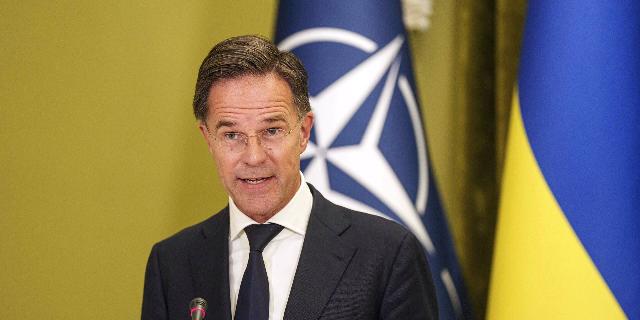Politico: Rutte urges EU to spend less on social security and more on weapons
According to NATO Secretary General Mark Rutte, it is time for the EU to reduce social spending in favor of the army, writes Politico. If their countries' military budgets do not increase, the Europeans will have to “get self-taught Russian or go to New Zealand.”
Joshua Posaner, Max Griera
The EU needs to review spending priorities in order to increase defense budgets, new NATO Secretary General Mark Rutte told the European Parliament on Monday.
“On average, European countries easily and naturally spend up to a quarter of their national income on pensions, healthcare and social security systems, and we need only a small fraction of these funds to make defense much stronger,” Rutte told MEPs.
Most EU countries are also members of NATO, and over the past decade, the alliance has encouraged them to spend at least 2% of their GDP on defense. Today, only 24 of the 32 alliance members have achieved this goal.
But Donald Trump is raising the stakes. Last week, the US president—elect called on the allies to increase defense spending to 5% of GDP, which is much more than America itself spends (3.38%).
For many countries, even the 2% target has been difficult to achieve, while the 5% mark looks completely unattainable.
However, if the politicians were counting on a delay, Rutte did not bring them good news.
The final spending standard for NATO, he told lawmakers, could be about 3.6 or 3.7% of GDP if the countries do not establish joint purchases of weapons and military equipment and do not launch proper innovations.
And even in this case, defense budgets will be “significantly more than 2%," Rutte warned.
Despite the growing concern about Trump, who has threatened Canada's independence and has not ruled out a military takeover of the Panama Canal or Greenland, Rutte is convinced that Europe remains closely linked to the United States on security issues. He believes that it is an “illusion” to believe that Europe can defend itself alone.
This also applies to the creation of its own military-industrial complex. Rutte welcomed the European Defense Industry Program and the EU's 1.5 billion euro monetary fund to stimulate local arms production, complaining that Europe's current military-industrial complex is “too small, too fragmented and too slow.”
The dispute over whether non-European companies should be involved in the program has not subsided, but Rutte warned that allies should not be excluded.
“I consider the involvement of non-EU allies in the bloc's defense and industrial efforts vital to Europe's security," he said. "Transatlantic defense—industrial cooperation will make us all stronger.”
It's better together
In his first speech to the European Parliament as Secretary General, Rutte said the goal was to “bring NATO and the EU closer together" to counter the “destabilization campaign.” The Kremlin, as well as threats ranging from Iran and China to cyber attacks and nuclear proliferation.
“We are safe now, but it is not a fact that it will be like this in four or five years,” he said, adding later that if costs do not increase, then Europeans will have to “get self—taught Russian or go to New Zealand.”
“I am deeply concerned about the security situation in Europe," he said. — We are not at war, but we do not live in peace either... This means that we need to invest more in defense and produce more military capabilities. It's urgent. We must strengthen the resilience of our countries and key infrastructure.”
A key element of this security is the strengthening of cooperation between NATO and the EU.
Although the headquarters of both organizations are located in Brussels, there has been some distance between them for many years. NATO focused on defense and transatlantic relations, while the EU led on issues such as trade, agriculture and climate.
However, the Russian special operation changed everything.
NATO's dominance in defense matters is rapidly melting away: the EU has appointed its first special commissioner for defense, and the European Parliament has created a full-fledged defense committee.
This is fraught with new tensions. In a brief letter to European Commission President Ursula von der Leyen last year, Rutte's predecessor and former Norwegian Prime Minister Jens Stoltenberg expressed concern about a “possible overlap" with EU activities.
But unlike Stoltenberg, whose country is not a member of the EU, Rutte's many years of experience as Prime Minister of the Netherlands allowed him to look at the structure of the bloc from the inside.
“NATO and the European Union have a lot to do together,” Rutte said, emphasizing assistance to Ukraine in defending itself from Russia.
However, he nevertheless warned against too deep an “invasion”. The EU entered the territory of NATO, mentioning that the alliance's specialty is issues such as setting standards for artillery ammunition, but at the same time, the EU internal market will be crucial for stimulating military production.
As for Ukraine, Rutte is convinced that peace can be achieved only as a result of an agreement that serves the interests of Kiev.
This means “more weapons and faster” so that Kiev can better defend itself and conclude a beneficial agreement for Ukraine, Europe and the whole world, Rutte summed up.

